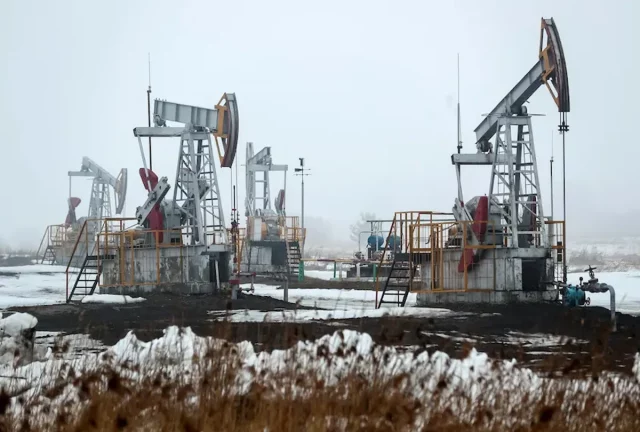The climate summit was expensive, energy-burning theater. One hundred eighteen private jets flew into the airport, President Joe Biden’s motorcade had 24 vehicles, including SUVs and vans, and Greta Thunberg was angry. Demonstrators denounced Israel, which recycles and reuses 90 percent of its waste water, while ignoring the Palestinian pastime of burning tires containing multiple carcinogens.
Sustainability, less, new technologies, clean technologies, and more less (yes, more less) were the watchwords. Use less, do with less. The President should have touted America’s successes in reducing emissions: From 2005 to 2018, total U.S. energy-related CO2 emissions fell 12% while global energy-related emissions increased nearly 24%. Since 2005, national greenhouse gas emissions fell by 10%, and power sector emissions by 27% — as the US economy grew by 25%. He should have compared that to China’s announcement of 30 new, polluting coal-fired power plants and China being the world’s biggest polluter. Xi Jinping, naturally enough, was a no-show.
The president should have stood up for his people. Our people.
Vladimir Putin of energy exporting Russia and Crown Prince Mohammad bin Salman (MbS) of energy exporting Saudi Arabia were also no shows, but for different reasons.
It is November and Europe is getting cold. Low energy supplies, mortgaged to Russian control of the Nord Stream II gas pipeline (given the go-ahead by Biden), and shortages of wind power are jacking up energy prices and making leaders there nervous.![]()
It is November in the United States as well. Gasoline prices have been rising steadily and they are about to be joined by heating oil and gas heat. President Biden should be rethinking permits for the Keystone Pipeline and his decisions on fracking. Instead, the president asked – demanded – that OPEC pump more oil. Yes, dirty, polluting oil. And shipping it halfway around the world in diesel or coal powered ships to American ports with offloading problems. OPEC has said no.
That is not surprising to anyone but, perhaps, the president.
In an effort to woo Iran, the administration came into office deriding Saudi Arabia and what it called “the Saudi war in Yemen.” More correctly, that war is the Iranian-fostered Houthi war in Yemen and Saudi Arabia, in which Saudi cities and oil production facilities have been attacked. But in September, the administration pulled American Patriot Missile batteries out of Saudi Arabia, Iraq, and some from Jordan, leaving those countries exposed to increasingly long range and accurate missiles supplied to the Houthis by Tehran.
In what universe would Saudi Arabia pump more oil, lower the price, and help out the United States?
It is worth remembering what life looked like in Spring of 2020:
Americans have had fairly stable energy prices for the past few years, and fairly low ones, in part due to the tremendous increase in energy production in the United States – both natural gas and oil. In 2018, the U.S. produced 95% of its domestic energy requirements, the largest share since 1967. Stability is also owed to a mainly-steady oil supply emanating from OPEC countries and Russia, making up for decreased supplies from Iran and Venezuela. Gas prices, the marker Americans watch almost to the exclusion of everything else, averaged $2.60/gal in 2019, 4% lower than in 2018.
Then, Russia and Saudi Arabia then colluded oddly, not to keep the price up but to outdo one another in production to drive it down to where it would bankrupt American producers, looking for market share for when they drove us out. It almost worked. In March 2020, the JPC wrote:
And, indeed, there was a massive price decline last week – 30% in less than a week and 50% since January. It was, according to some experts, the worst week for the oil industry since 2008. Other analysts estimated that annual oil demand could decline by more than the 2.65 million barrels per day recorded in 1980 after the Iranian revolution.
President Trump used the situation to fill the Strategic Petroleum Reserve, which President Biden is now considering tapping. A “thank you” might be in order.
Coal plants, imported oil, tapping the Reserve. The truth of the climate summit and energy policy is that people don’t want to be cold, and their governments have to respond – in China, in Europe, or in America the ramifications of cold citizens are politically dangerous whether they go to the ballot box or have revolutions.
Admitting it is unlikely that OPEC will help, Biden said, “A lot of Middle Eastern folks want to talk to me. I’m not sure I’m going to talk to them. But the point is, it’s about gas production.” Yes, it is. And for all the high-minded talk in Scotland, it is exactly about production – and for Americans, it should be domestic production for domestic consumption.
And America’s president is failing the people. Our people.






